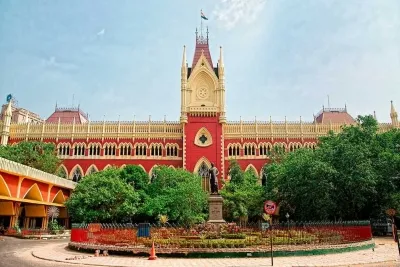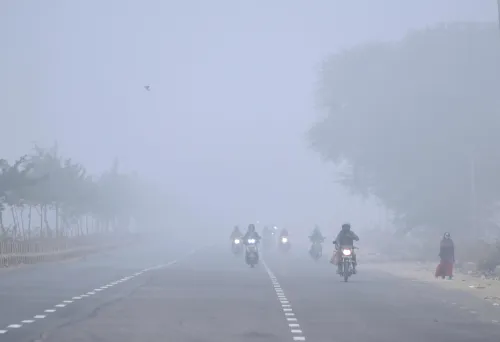Did VHP Challenge the 'Dham' Title for Digha Jagannath Temple at Calcutta HC?

Synopsis
Key Takeaways
- The VHP filed a PIL against the Dham title for the Digha temple.
- The Calcutta High Court has accepted the petition for hearing.
- Controversy arises from the source of sweets distributed as Prasad.
- BJP criticizes the Chief Minister for undermining Hindu sentiments.
- The term 'Dham' holds particular significance in Hinduism.
Kolkata, July 2 (NationPress) The Vishva Hindu Parishad (VHP) has filed a public interest litigation at a division bench of the Calcutta High Court on Wednesday, contesting the designation of the title “Dham” for the newly inaugurated Lord Jagannath Temple located in the East Midnapore district of West Bengal.
The division bench comprising Justice Soumen Sen and Justice Smita Das has accepted the petition, which is set to be heard on either Thursday or Friday.
According to official records of West Bengal, the temple in Digha is recognized as the Shree Jagannath Dham Cultural Centre. The primary controversy has stemmed from the Hindu belief that, aside from the four holy sites at Badrinath, Rameswaram, Dwarka, and Puri, no other religious site should be referred to as “Dham”.
The VHP's public interest litigation is based on these grounds. The petition also highlights that some of the sweets distributed as “Prasad” from the Digha temple were sourced from sweet shops owned by non-Hindus, which has raised concerns about Hindu religious sentiments.
From the outset, the BJP has voiced opposition against the distribution of sweets from non-Hindu shops as “Prasad” at the Digha Jagannath temple.
Last month, Amit Malviya, head of the BJP’s Information Technology cell and the party’s central observer for West Bengal, accused Chief Minister Mamata Banerjee of undermining Hindu sentiments by distributing these sweets from non-Hindu establishments.
He argued that, by tradition, non-Hindus are prohibited from entering the Shree Jagannath Dham Temple in Puri, Odisha, a practice that preserves the sanctity associated with Lord Jagannath and his traditions.
In this context, Malviya contended that sourcing “Prasad” for Lord Jagannath's devotees from non-Hindu shops does not reflect secularism but rather constitutes targeted sacrilege.










